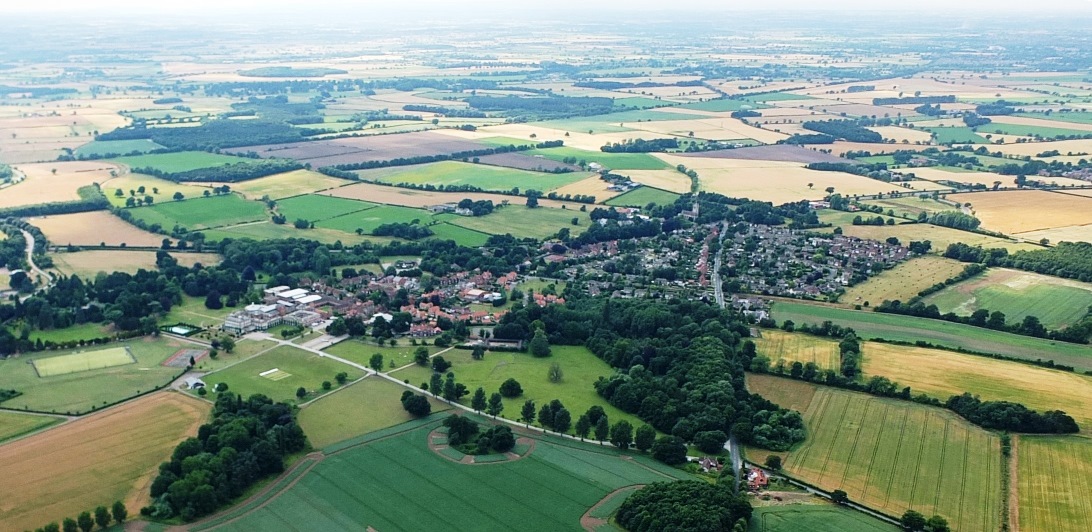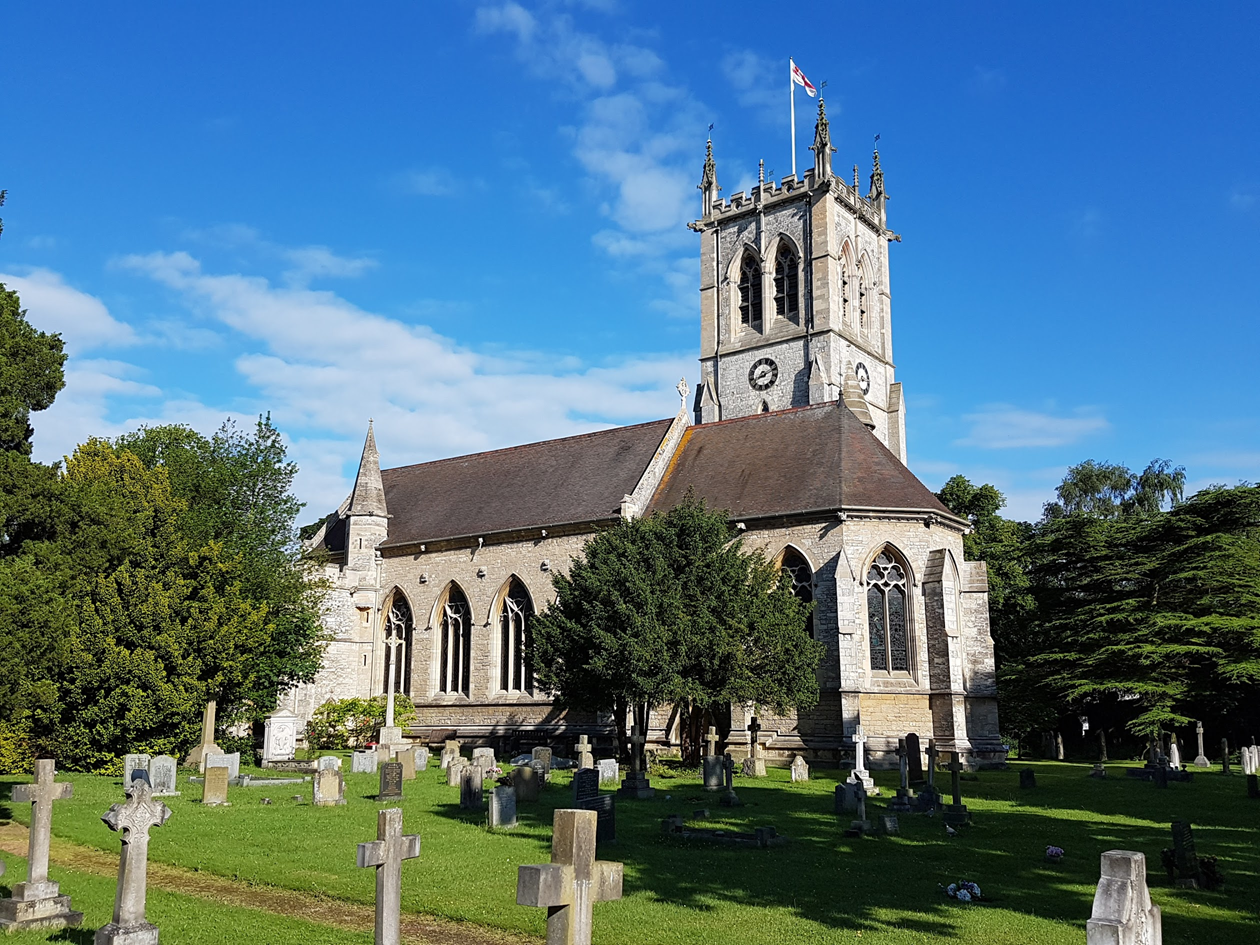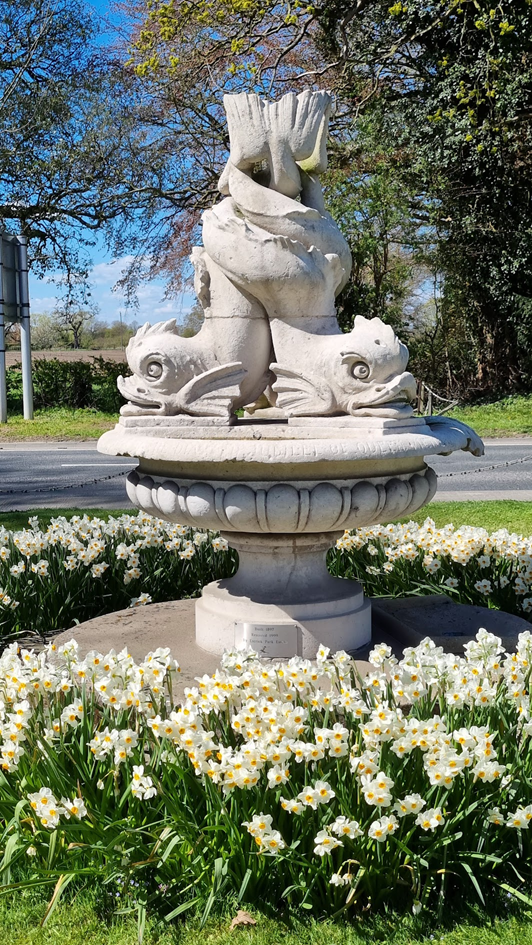About Escrick
Escrick is a village located about 7 miles south of York and 7 miles north of Selby, which can trace its history back to at least medieval times. The village has approximately 1,100 residents across just over 380 households and is surrounded by agricultural land, much of which forms part of the 8,000 acre Escrick Park Estate. A large part of the village makes up the Escrick Conservation area.

The village enjoys an active social calendar, including a thriving Village Hall, the Escrick & Deighton Club, the Escrick 10k run, quiz nights, dinner on the green, carols on the green and various other social events. There are many clubs and societies including Escrick Heritage, Mother's Union, Tennis Club, Yorkshire Country Womens' Institute, Swimming Club, Young Farmers Association, and many more.
Escrick is thought to have developed as a settlement on the glacial moraine that runs west to east through the village, where the land will have been less prone to flooding than the surrounding areas. During the medieval period, the village was known as “Ascri" (Ash Ridge), but by 1600 the name Escrick was in use.
Escrick was developed as an Estate Village by Sir Henry Thompson who acquired the village and the Hall in 1668. Sir Henry's great grandson, Beilby Thompson, inherited the Estate in 1742. Under this ownership the village extended north towards York; the Church was relocated from beside the Hall to its present site on the York Road (A19); and most of the former site of the village was cleared and became the grounds of Escrick Hall (part of Queen Margaret's School from 1949 to 2025). Part of this reorganisation involved an Act of Parliament in 1776 stopping the main village street at the gates to the Hall and creating a bypass. The village's sylvan character also evolved from the time of enclosure when the open land became parkland.
More: A timeline of Escrick through the ages

The village contains several historic buildings:
There are several monuments and memorials in the village:

The 'Principal Council' for Escrick is North Yorkshire Council. They provide services such as bin collections and planning, highway maintenance and also collect local council taxes. Escrick also has a local Parish Council as the most local tier of local Government, providing amenities such as the playground and village green. See the Parish Council's FAQs page for a more comprehensive summary of the split of council responsibilities.
The village has both a primary school and a pre-school, and falls in the catchment area for Fulford School, for secondary aged pupils.
The village has mains electricity, water and drainage, but does not have mains gas, so most properties use oil or electricity for heating.
The village has "full fibre" broadband from two providers: Quicklineand Fusion Fibre providing speeds of up to 900mbps. There is also 'fibre to the cabinet' broadband - with most of the village able to receive broadband speeds between 20mbps and 70mbps.
Vodafone, EE, Three and O2 provide reasonable mobile phone coverage (including 4G) to most parts of the village.
The village benefits from its own doctors' surgery which also contains a pharmacy.
St Helen's Churchis the village church, and also the focal point for the Escrick Heritage community initiative.
A well equipped village hall is available for regular and ad hoc hire.
The village green is also used for several events during the course of the year.
The Escrick and Deighton Club located in the heart of the village runs a family friend bar, serving drinks and food. It also has a recently refurbished function room for hire.
The Fat Abbot gastro pub and the Sang Thai restaurant are both located on the A19 in the village. (Sadly the Black Bull pub closed in 2020, and is in the process of being converted into housing).
There are tea shops at Olivia's Tea Room, Rider's Retreat and The Parsonage. A community tea shop operates on monthly at Escrick & Deighton Club.
A frequent bus service passes the village on the A19 - with services to both Selby and York each taking around 25 - 30 minutes.
Other key local services are listed on the Services and Local Links page, Businesses page, and Food, Drink and Accommodation page.
A public access defibrillator is located on the front wall of Escrick club for public use.
There is no longer a public telephone in Escrick.
Grit bins are located in key locations in the village.